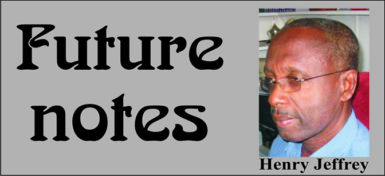
Universally, political leadership only usually comes to recognise that normal politics cannot exist in countries such as ours after long periods of actual or simmering internecine conflict, and it would be good if the political leadership of both the PNCR and PPP/C are now positioning themselves for such an adventure. Solutions must be found to the structural political/ethnic problems that have for decades thrown the major communities in this country against each other and stymied Guyana’s development. Past conflicts, animosities and suspicions have not prevented others and should not prevent us from taking this journey.
Historically, Cheddi Jagan and Forbes Burnham played cat and mouse with coalition formation. The idea was given little currency by Desmond Hoyte until after the opportunity offered by the 2001 constitutional reform process to negotiate for the requisite changes had passed. Since then, the PNCR has consistently supported calls for national unity government, and the 2015 APNU+AFC manifesto included such a call.
When Cheddi died, in order to manage our troublesome abnormality, instead of choosing the more democratic pathway offered by a national unity government, the PPP/C tried and failed to dominate the national political space. It is not that after this the leadership of that party did not consider the national unity idea. Indeed, just after the 2011 general elections, I accidentally happened upon a high level PPP/C meeting, at which Mr. Jagdeo was present, at which this issue was discussed. And sometime after that, when I was invited by the PPP/C to make a presentation at Freedom House and I chose to speak on the need for a national unity government, it appeared that what I said was well received.
As indicated above, leaders usually take time to appreciate our kind of context, and after the 2011 elections Mr. Jagdeo and company were still smarting from their loss and very much in the mode of blaming the party organisation on the ground. The PPP/C’s massive mobilisation in 2015 ended in a worse result, which must have suggested to the leadership not only that negative demographic shifts had taken place but also that a more collegial path would better suit their supporters and Guyana. So let us consider in a bit more detail what Messrs. Williams and Jagdeo had to say on this important matter to indicate a way forward.
In two articles, `There was no formal proposal for power sharing – Jagdeo ‘ (SN 26/08/2016) and `PPP will not ‘beg’ gov’t to share power – Jagdeo’ (Chron. 24/08/2016) the opposition leader was requested to respond to a statement in the United States Agency for International Development’s paper Democracy, Human Rights, and Governance of Guyana that the PPP ‘refused the offer to form a government of national unity’ with the APNU+AFC. Mr. Jagdeo responded that no formal offer has ever been made to his party, which is neither anxious nor eager to be in the coalition executive. He, however, stated that his party and the government should work together for the good of the people of Guyana, but that such cooperation needs to be based on clear principles. ‘[W]e are not a party that some people thought that we were going to beg to be part of this government.’
The Chronicle article went on to state that commenting on the same issue, the chairperson of the PNCR stated that while the PPP/C is in opposition its job is to oppose and that the populace should not be overly concerned with its behaviour for ‘he believed the opposition party will eventually join the coalition government’. He went on to claim that his party has always supported inclusivity. ‘We are the ones that always strove to have inclusive governance and we brought those parties to APNU and we were able to bring in the AFC into the realm. … and we believe that the PPP [are] going to come…they’re going to come and we don’t want them to come kicking and screaming – they must come of their own volition when they see the benefits of inclusiveness.’
Firstly and most importantly, it should be noted that as reported at that point, Mr. Jagdeo did not reject the notion that his party could become a part of the government: he simply and rightly stated that the PPP/C will not beg to be a part of such an arrangement, that it needs to be properly invited and that any coalition must be based on principles.
Secondly, as chairperson Williams’ party is now the larger and most powerful part of the government and has been committed for about a decade and a half to some form of executive power sharing, it is for the PNCR to take the initiative. Designing a better process for engaging the PPP should be child’s play and the chairperson will need to exhibit a bit more enthusiasm than ‘they must come of their own volition when they see the benefits of inclusiveness’. Mr. Williams might recall that his present laid back attitude is not what brought ‘the AFC into the realm’!
With the proviso that any proposal to form a grand coalition, consisting of all the parliamentary parties, is extremely questionable and thus needs to be widely discussed, now that the PNCR is in government it is for it to take a sustained initiative to engage the PPP/C. Unless, of course, the PNC is again only pandering to the growing public consensus that a heightened form of cooperation with the PPP is required.
henryjeffrey@yahoo.com





